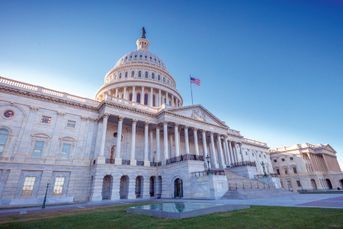Republicans expected to tackle retirement issues in 2015
Bipartisan spirit could lead to movement on key initiatives, including small employer 401(k)s; state actions also possible.
Retirement issues rarely came up during elections such as the one that gave Republicans control of the House and Senate on Tuesday, but that is expected to change when the 114th Congress convenes in January.
Their first appearance is likely to be when the new Congress focuses on tax reform and other revenue raisers. With retirement incentives high on the list of tax expenditures, “that puts retirement issues squarely on the table,” said American Benefits Council President James Klein. “For plan sponsors and participants, that is bad news if it comes at the expense of improving national [retirement] savings, or at the expense of existing plans.”
(Don’t miss: Advisers gung ho on a GOP Senate)
As of Wednesday, the GOP has 52 seats in the Senate — and two more seats awaiting runoffs in December — but is short of the 60 seats needed to avoid a Democratic filibuster. That means Republicans will have to work with Democrats to accomplish their agenda, which includes some Affordable Care Act tweaks, corporate tax reform and the Keystone XL Pipeline.
“The good news is that retirement policy is a lot less partisan than some other issues,” Mr. Klein said. A bipartisan spirit is expected to prevail as key Senate committees change leadership. Lamar Alexander, R-Tenn., is in line to head the Senate Health, Education, Labor and Pensions Committee, while Orrin Hatch, R-Utah, takes over the Senate Finance Committee. Both Republicans are versed in retirement issues and known for a bipartisan approach. Mr. Alexander would replace retiring Chairman Tom Harkin, D-Iowa, and Mr. Hatch would replace current Chairman Ron Wyden, D-Ore.
Mr. Hatch has sponsored legislation that would expand the use of multiple employer plans, allow public defined-benefit pension systems to buy private annuities and create a “starter 401(k) plan” for small private sector employers.
In statewide elections, Rhode Island General Treasurer Gina Raimondo, who overhauled that state’s $7.7 billion Rhode Island Employees’ Retirement System, Providence, in 2011, won her bid for governor. That pension reform is currently being challenged in court.
Connecticut State Treasurer Denise Nappier, the sole trustee of the $29.4 billion Connecticut Retirement Plans & Trust Funds, is expected to survive a possible recount in her re-election bid.
Also, New Mexico voters passed a ballot measure that removes the 15% cap restricting international investment of the $14 billion Land Grant Permanent Fund, which is overseen by the $20.2 billion New Mexico State Investment Council, Santa Fe. It also adopts a stricter standard of care for the fund’s fiduciaries. The council put a contingent asset allocation in place earlier this summer giving the staff the ability to increase international equities in the Land Grant Permanent Fund by three percentage points to 18% and reduce domestic equities by three percentage points to 32%.
Hazel Bradford is a reporter at sister publication Pensions & Investments.
Learn more about reprints and licensing for this article.






